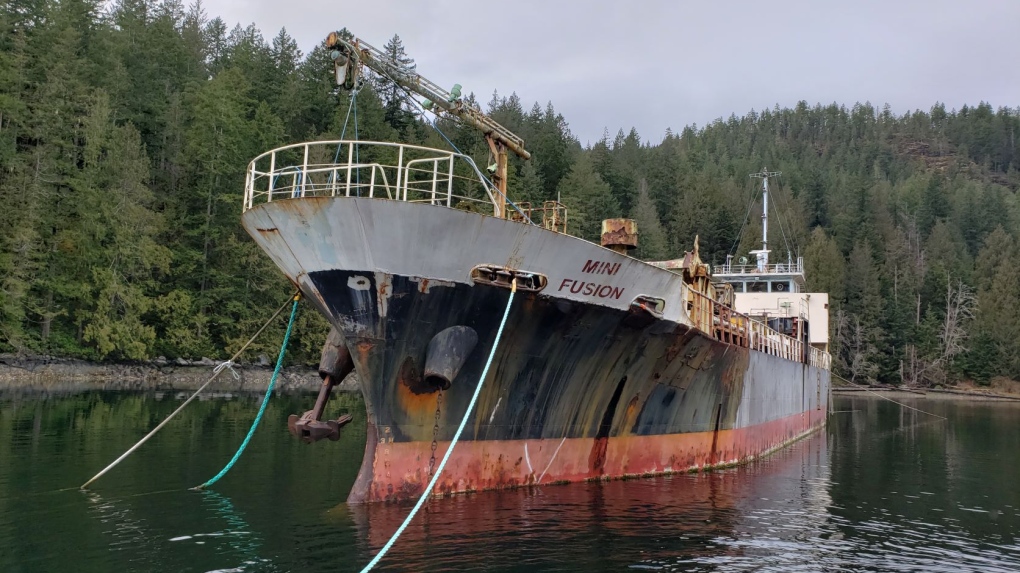Picture Credit: Canadian Coast Guard
The ship that arrived in British Columbia 13 years ago carrying Tamil refugees fleeing their genocide-afflicted homeland is being broken up for scrap after being deserted in nearby coastal waters.
MV Mini Fusion, formerly known as the MV Ocean Lady, arrived carrying 76 Tamil refugees aboard. The arrival of the ship to B.C. garnered international attention.
Those on the ship were immediately detained in jail around the Vancouver area. Many were let go within weeks or months but one, however, remained in custody in suspicion of being affiliated with the Liberation Tigers of Tamil Eelam.
Following its voyage across the Pacific Ocean in 2009, the 56-metre cargo ship ended up abandoned and anchored in Desolation Sound, a waterway between Vancouver Island and the B.C. mainland.
After a bidding process, Marine Recycling Corporation will salvage appropriate materials and dismantle any scrap material of the ship.

Built in Japan in 1990, the cargo ship was the first of two vessels carrying Tamil genocide survivors to B.C.'s coastal waters 13 years ago. Its arrival was followed by the arrival of the MV Sun Sea, which brought 492 migrants fleeing the Tamil genocide.
Ocean Lady engine room worker Francis Anthonimuthu Appulonappa, Capt. Hamalraj Handasamy, trip planner Jeyachandran Kanagarajah and chief engineer Vignarajah Thevarajah were charged with illegal immigration offences. In a July 2017 decision, B.C. Supreme Court Justice Arne Silveraman said that while there was evidence of organized criminal activity in the case, Crown prosecutors failed to prove beyond a reasonable doubt that the four men had connections to it.
Around 600 Tamils fled the genocide and sailed to Canada on the Ocean Lady and the MS Sun Sea in 2009 and 2010, respectively, amidst the bloodiest episode of the Tamil genocide - the Mullivaikkal Massacre. As many as 169, 796 Tamils were relentlessly bombed by the Sri Lankan state in government-designated “no-fire zones” and forced thousands more into becoming stateless refugees.
